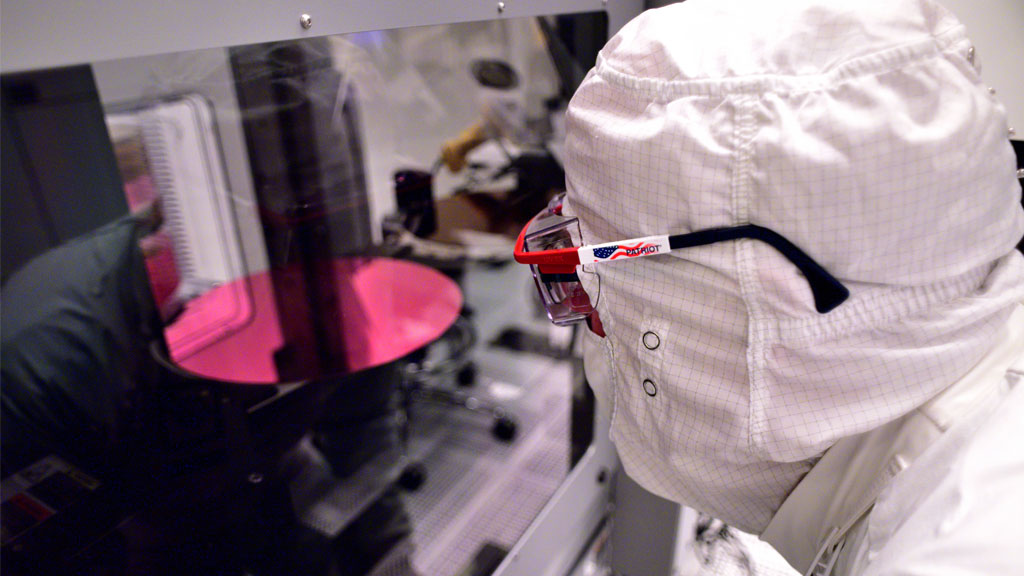Intel could help end the GPU shortage by making chips for Nvidia, but will it?
Before Intel becomes a rival to Nvidia in the discrete GPU space, it could become an ally.

You know the graphics card situation is dire when a company takes to relaunching the GeForce GT 730, as MSI has done, to contend with the shortage. The GT 730 first debuted seven years ago, almost an eternity in tech years. It's not the final answer to solving the GPU shortage, but one potential solution, interestingly enough, is for Nvidia to source chips from Intel.
Whether that ends up happening or not remains to be seen, but Tom from the YouTube channel Moore's Law Is Dead claims to "confirm" Nvidia is "talking to Intel about fabs."
"I think people need to understand that Nvidia, Intel, they're not just gonna roll over and let TMSC combine with AMD and crush everyone, or TSMC combine with Apple and crush everyone. Nvidia isn't gonna roll over," Tom said. If TSMC starts dominating too hard, they're going to see what they can do to team up with Intel, and vice versa."
Tom notes that all the big players involved are "are preparing for major wars with [upcoming chip] architectures, and finding allies if one of them gets too powerful."
He mentions TSMC because it is the largest supplier of chips to companies like AMD, Apple, and Nvidia. There is only so much capacity to go around, however, and both AMD and Nvidia are selling graphics cards just as quickly as it can source chips for them.
There are different reasons for this. Cryptocurrency mining is one of them, and so is a global shortage of silicon, which is where Intel could provide some relief. However, just having talks with Intel is very different than actually coming to an agreement.
Every chip manufacturer always keeps multiple fabs on the ready as alternatives if/when issues/delays arise somewhere else. Having Intel as an alternative is at the very least a minimum exercise for anyone that needs serious chip supply.June 10, 2021
In a Twitter thread on the topic, Dr. Ian Cutress from our sister site Anandtech notes that everyone is likely talking to Intel, given the current landscape. This was reiterated by Anshel Sag, a senior analyst at Moor Insights and Strategy.
The biggest gaming news, reviews and hardware deals
Keep up to date with the most important stories and the best deals, as picked by the PC Gamer team.
"Every chip manufacturer always keeps multiple fabs on the ready as alternatives if/when issues/delays arise somewhere else. Having Intel as an alternative is at the very least a minimum exercise for anyone that needs serious chip supply," Sag stated.

Best CPU for gaming: the top chips from Intel and AMD
Best graphics card: your perfect pixel-pusher awaits
Best SSD for gaming: get into the game ahead of the rest
So if Tom's information is correct, it could be nothing more than Nvidia doing its due diligence. From the outside looking in, there is just no way of knowing one way or the other.
The interesting wrinkle to all this is that Intel will be launching its own discrete GPU line for gaming later this year. It's an effort being led by Raja Koduri, who prior to landing at Intel was the graphics boss at AMD's Radeon division. Rumor has it Intel's top Xe-HPG graphics chip could offer performance comparable to a GeForce RTX 3070 Ti, which would be impressive.
Such a part would surely be in high demand (presuming Intel doesn't fumble on the driver/software side). Even if it doesn't reach that level of performance, it could still ending up being a high-demand product, hence the GT 730 making a depressing comeback.
Paul has been playing PC games and raking his knuckles on computer hardware since the Commodore 64. He does not have any tattoos, but thinks it would be cool to get one that reads LOAD"*",8,1. In his off time, he rides motorcycles and wrestles alligators (only one of those is true).


